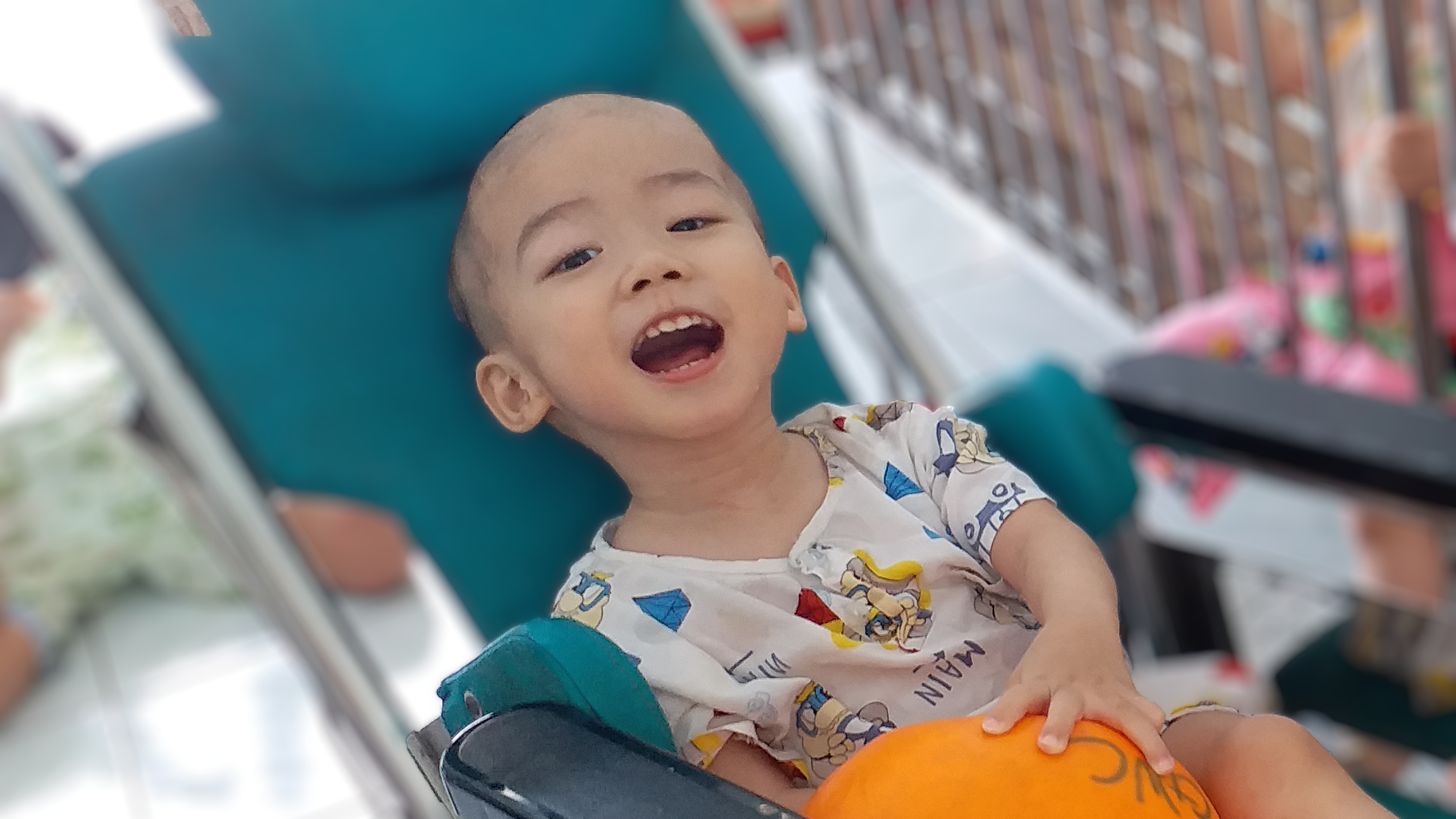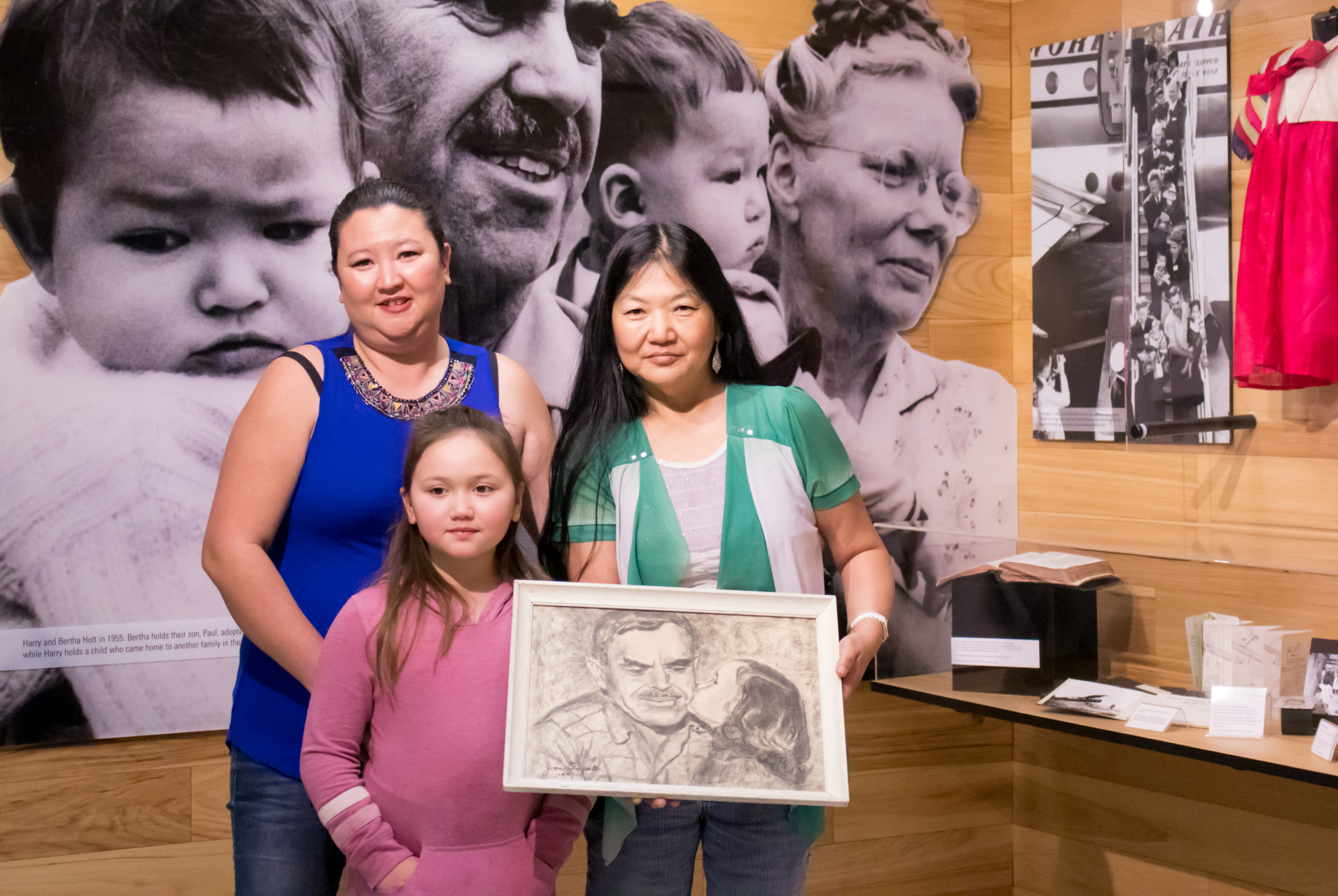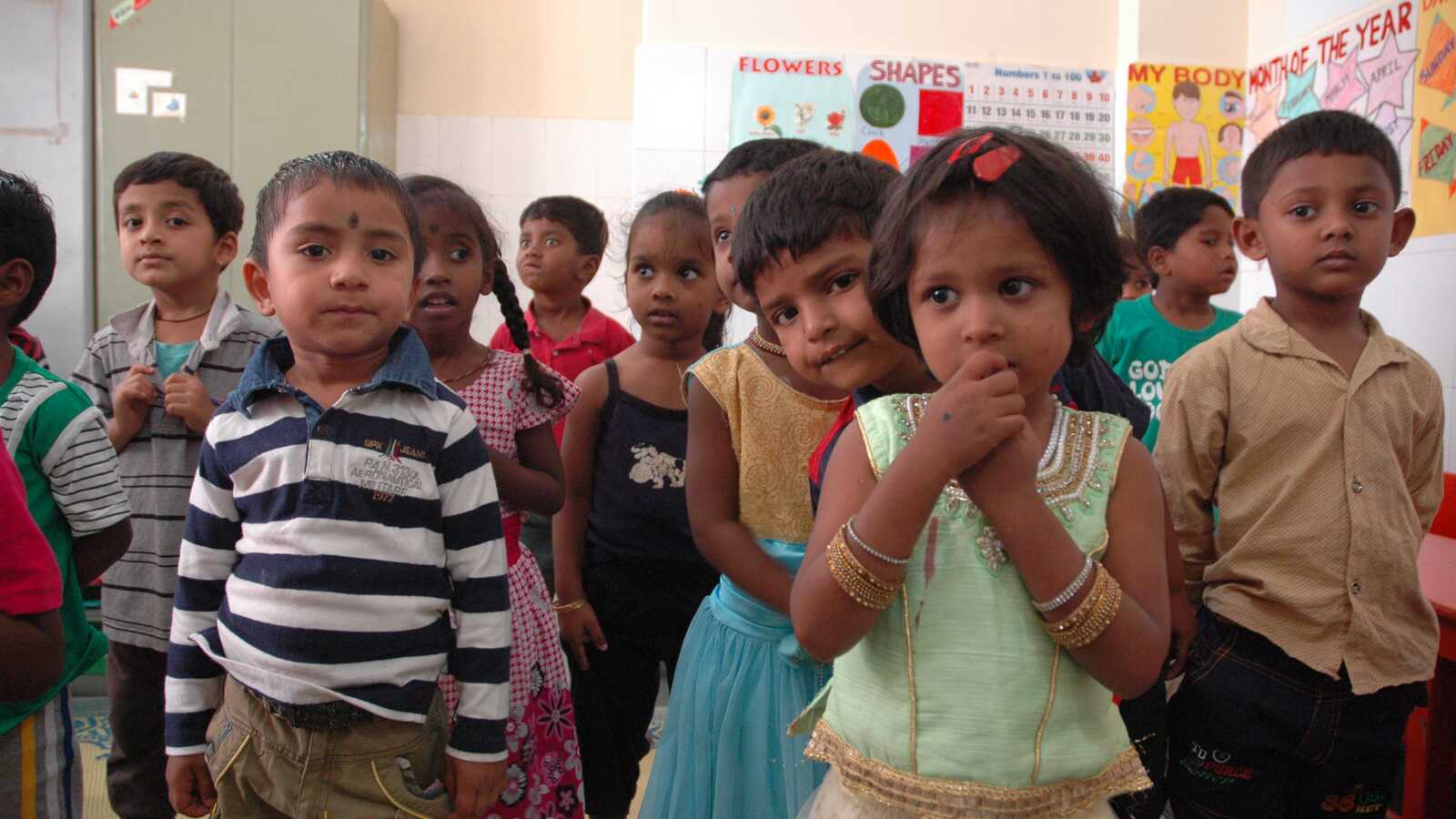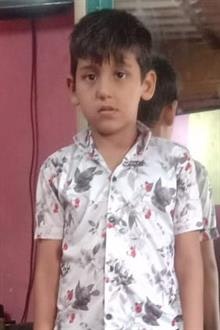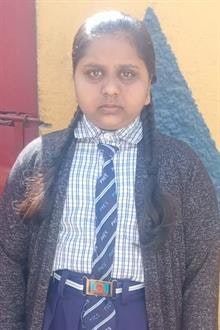In India, and in developing countries around the world, the COVID-19 crisis has significantly increased the risk of child marriage. But one key factor continues to make a dramatic difference in the lives of vulnerable girls and young women: child sponsorship.
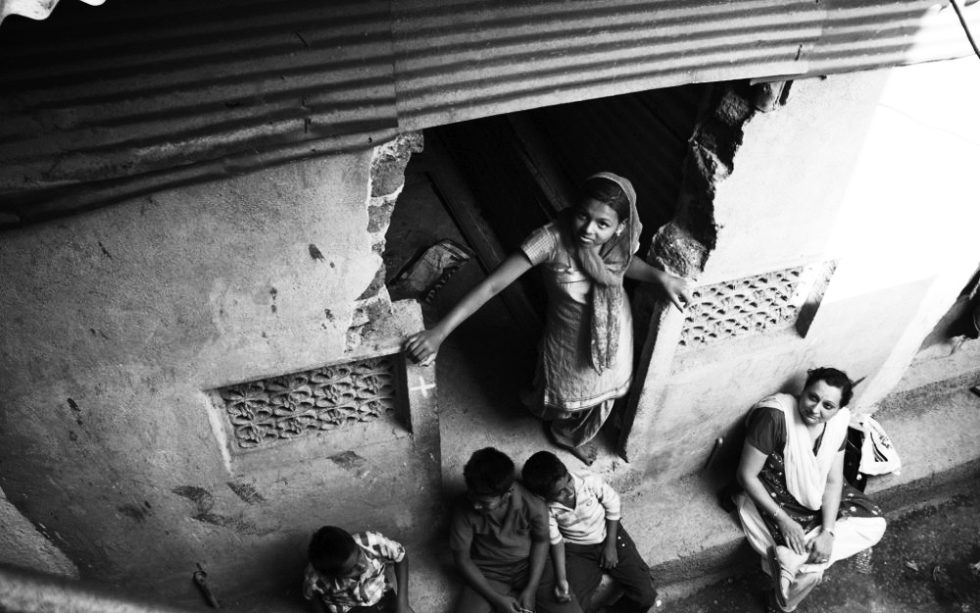
Rani* was just 17. She did not want to get married. She argued and pleaded with her mom. She asked her social worker to convince her mom to delay her marriage. Rani knew her mom was struggling to support her and her two little sisters. If she got married, it would ease the burden on her family.
But she knew what she could look forward to.
Within a year, she would be expected to become pregnant. If she didn’t, her family would wonder what’s wrong. Especially her in-laws. In India, when a girl gets married, she typically goes to live with her husband’s family. If she wants to do anything outside the home, she will need both her husband’s and her mother-in-law’s consent.
Rani didn’t want to give up her freedom. She didn’t want to give up school, which she excelled at. She didn’t want to give up the possibility of a different kind of life from the one her mother had — a life of her own choosing.
Over Rani’s objections, her family moved forward with arranging her marriage. In April 2020, during India’s countrywide lockdown, her family held a small, quiet ceremony inside their home. Her husband was 22, a construction worker who had less education than his 17-year-old bride.
A Global Surge in Child Marriage
Across India, as in developing countries around the world, the COVID-19 crisis has significantly increased the risk of child marriage.
According to a recent UNICEF report, “Over the next decade, up to 10 million more girls will be at risk of becoming child brides as a result of the pandemic.” In the slum communities of Pune, India, where Rani lives, our local partner has actively stopped several underage marriages during the past year of the pandemic. But they were unable to stop five from moving forward.
According to a recent UNICEF report, “Over the next decade, up to 10 million more girls will be at risk of becoming child brides as a result of the pandemic.”
Before COVID-19 hit India, child marriage had been all but eliminated in these communities.
Vaishali Vahikar is the sponsorship director at Bharatiya Samaj Seva Kendra (BSSK), Holt’s long-time partner in Pune. For over 24 years, she has worked directly with the children and families in Holt’s sponsorship program in Pune.
“A surge is being seen in cases of child marriages — girls below 18 years of age — due to factors including the lockdown,” Vaishali explains. “Lockdown has resulted in the closure of schools, impact on the economy and lack of financial security and uncertainty over families’ livelihoods, which has pushed many into poverty.”
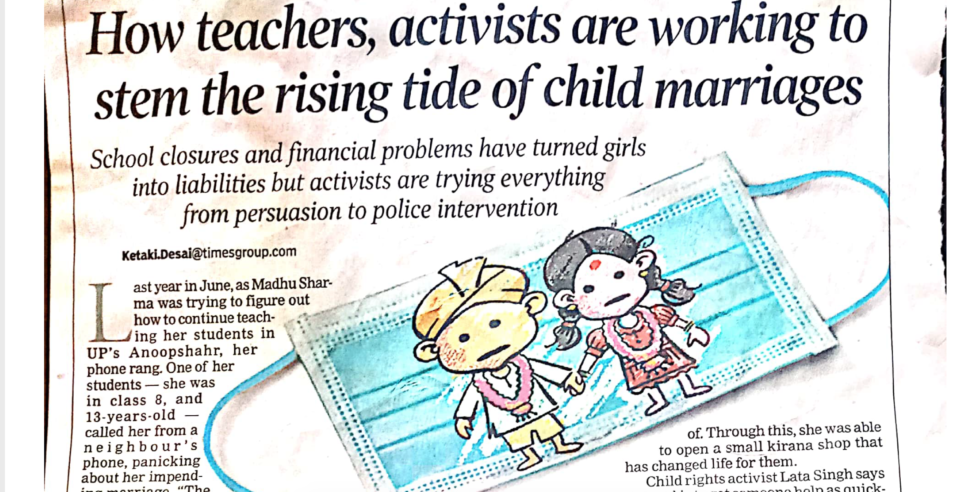
In India, a country where about one-fourth of young women marry before the age of 18, the risk was already among the highest of anywhere in the world. According to UNICEF, one in three of the world’s child brides live in India. Of the country’s 223 million child brides, 102 million were married before turning 15.
“Since BSSK has started providing its services in communities through educational sponsorship, girl child education and delay in the age of marriage has been always been top priority.”
Vaishali Vahikar, sponsorship director at Holt partner BSSK
But in the communities where Holt works in India, a hopeful development began to happen about four decades ago — the same time that sponsors began supporting girls’ education.
Girls started to stay in school longer, and marry later.
“Since BSSK has started providing its services in communities through educational sponsorship, girl child education and delay in the age of marriage has been always been top priority,” says Vaishali.
At the time, in the early 1980s, mostly boys attended school in the urban slum communities and rural villages where Holt and our partners work in India. As boys were expected to one day provide for their families, their education was given priority over their sisters’. If families could only afford school fees for one child, they would send their son to school. Girls stayed home and learned how to be a wife and mother. That was the norm.
But when sponsors began supporting children, the norm began to change.
How Sponsors Help Protect Girls
“Whenever a needy family approached BSSK for educational support for their children, it was the girl child who would be selected [for the program],” Vaishali says.
Sponsors covered their sponsored child’s school fees, uniforms and supplies — making it possible for her to attend school alongside her brothers. In Pune, our partner began life skills trainings and summer camps where boys and girls discussed everything from career paths to marriage to how to report sexual violence. They held workshops and trainings for parents where they discussed the same topics. Because of their sponsors, every child also had an advocate — a social worker who encouraged her in school and repeatedly emphasized the value and importance of her education to her family.
As they met with families, social workers also worked to educate them about the importance of delaying marriage until their daughters turned 18. If necessary, they would intervene.
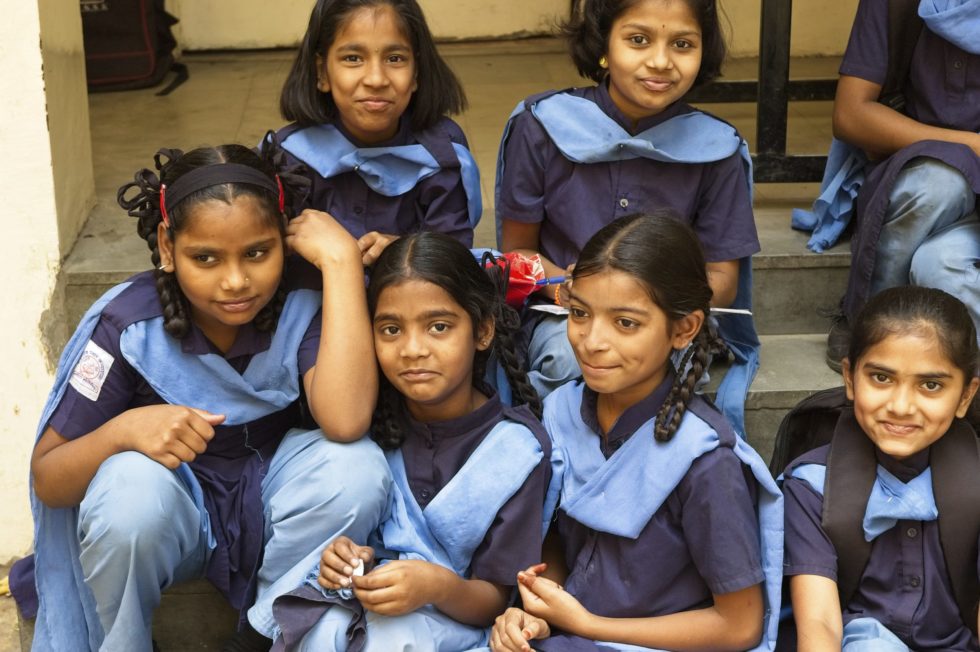
“BSSK with the help of authorities have stopped child marriages if there was information beforehand,” explains Vaishali.
Although marriage is illegal in India for girls under 18 and boys under 21, the law can be difficult to enforce.
Jim De is the director of Shishu Sangopan Griha (SSG), Holt’s partner in Delhi. As Jim explains, it’s difficult to work against such a firmly entrenched social and cultural tradition as child marriage.
Although marriage is illegal in India for girls under 18 and boys under 21, the law can be difficult to enforce.
“For many girls in India, I would think that they are brought up mentally prepared and mentally trained to believe that they are being prepared for marriage. That the ultimate goal is marriage,” Jim explains. “And they are also being trained to understand that marriage will start by age 16 or 17. So whether we say it’s a legal system of 18 or 21, irrespective communities respond to their community systems and social traditions.”
Even when cases of underage marriage are reported, no punishment may be handed down. But when girls are in school, they have added protection. If girls don’t show up for class, teachers notice — and can potentially stop a marriage before it happens.
Over time, as more girls attended school in the communities where Holt works, there were fewer and fewer cases of child marriage. Among the girls in Holt sponsorship in Pune, they became almost unheard of. Instead, families saw their daughters graduate high school — and some go on to attend college on scholarship.
Rani was in the 7th grade when her mom reached out to BSSK four years ago for help sending her daughters to school. Without a sponsor, Rani may have dropped out. Instead, last year, she graduated to the 10th grade.
Then COVID-19 hit India, pushing thousands of families into crisis — and forever changing Rani’s life and the lives of many girls like her. Sadly, even sponsorship could not protect these girls from this unprecedented global crisis.
A Solution in a Time of Crisis
The reasons child marriage has increased in India since the pandemic are complex, and varied.
With schools closed, children are no longer under the watchful eye of their teachers, making it easier for families to marry their daughters without being detected. Some families worry about the dangers their daughters face when not in school, such as a greater risk of sexual assault. If married, they believe, their husband will provide protection.
But for a majority of families choosing to marry their daughters now, their reasoning comes down to economics.
They have lost jobs. They are struggling to feed their children. And even though Holt sponsors and donors have gone above and beyond to provide emergency support — and Holt’s on-the-ground teams remain steadfast in their dedication — families feel a deep sense of uncertainty. As of this writing, India is experiencing the deadliest second wave of COVID-19 anywhere in the world.
“For families in crisis — families like Rani’s — marrying their eldest daughter is seen as a means of survival. As Vaishali puts it, “They feel relieved if one of their responsibilities — their daughters — is taken over through the ritual of marriage.”
As much as they try to intervene, social workers cannot always stop a marriage from moving forward.
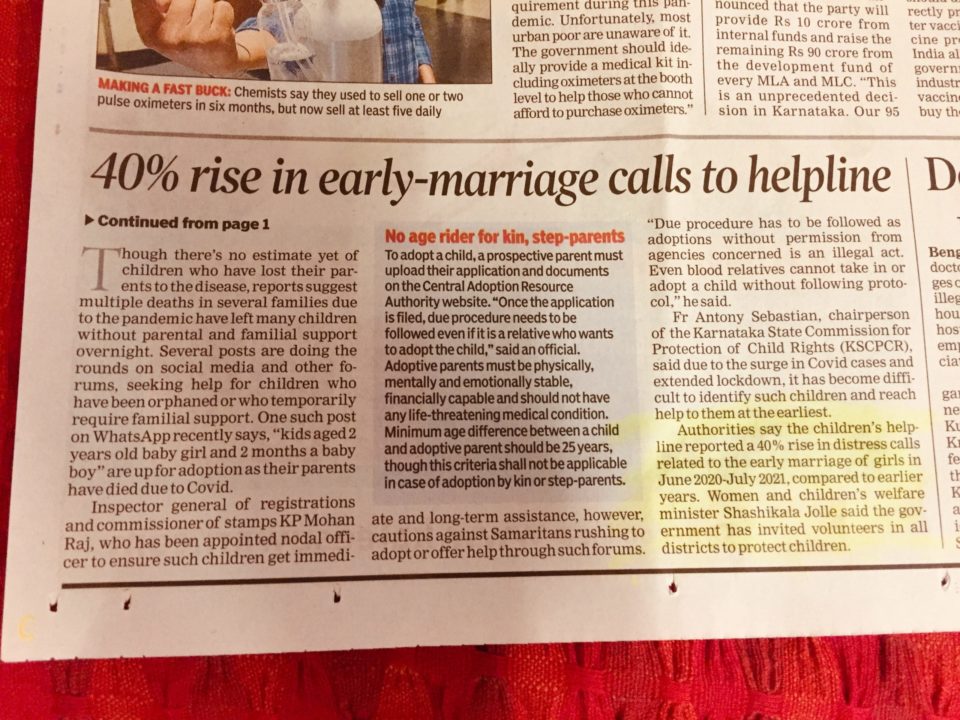
“We have been calling our families who are in our educational sponsorship program and asking them, please don’t get your daughters married,” Vaishali continues. “The only thing which we can do is educate them.”
Rani’s mom never finished school, and cannot read, write or do basic math. She married young and when her husband died of TB, she suddenly had to support her family on her own — including her mother-in-law and three young daughters. She got a job cleaning buildings and worked as a laborer on farms. She tried very hard to care for her family and ensure a good education for her daughters.
But when India went into lockdown, Rani’s mom lost her cleaning job. At the time, one of Rani’s younger sisters was undergoing expensive medical treatment. She needed surgery. For Rani’s mom, marrying her eldest daughter seemed like the best solution — one that could also, unfortunately, have lifelong consequences for Rani.
A Reason for Hope
Across the globe, girls who marry young are more likely to experience domestic violence. They are at increased risk of early and unplanned pregnancy. They can become isolated from family and friends. And as the demands of housework and motherhood take up their time, they are less likely to stay in school.
But thankfully, one area where our partners continue to have an influence is in continuing education for girls after marriage.
“As her social worker came to know about her marriage, she interacted with Rani’s husband … He has assured to help Rani continue and complete her further education,” Vaishali says.
Rani is fortunate that she already knew her husband when they married. He was a long-time friend of the family. But typically, girls are arranged to marry boys they hardly know. Boys who are five to nine years older than them. Boys who they may or may not have anything in common with, and who may or may not be loving and kind to them.
Rani, however, has continued online classes with the support of her husband and her mother-in-law. She recently started the 11th grade. Her sponsor continues to support her, and her social worker continues to look out for her.
For Rani, the future is hopeful.
But for many girls in India, and across the developing world, the risk of child marriage is greater than it has been for decades.
“Most child marriages due to COVID-19 are expected to occur in the near term among older girls,” UNICEF reports. “However, the impact of the pandemic is likely to be felt for at least the next decade, also raising the risk of early marriage for girls who are now young. Because marriage fundamentally alters the course of a girl’s life, the full effect of the pandemic on human development will play out over a generation.”
The global COVID crisis may set back decades of progress even in communities where our partners had effectively ended the practice of child marriage. But one key factor continues to make a dramatic difference in the lives of girls and women. And that’s educational sponsorship.
The global COVID crisis may set back decades of progress even in communities where our partners had effectively ended the practice of child marriage. But one key factor continues to make a dramatic difference in the lives of girls and women. And that’s educational sponsorship.
When schools closed due to the pandemic, our partners immediately recognized the risks to children, especially girls. Out-of-school children are at greater risk of not just early marriage, but also child labor, trafficking and exploitation. Through the generous support of Holt sponsors and donors, however, our partners had the resources they needed to maintain critical contact with children isolated at home.
They distributed mobile phones and laptops, which made it possible for children to do schoolwork online but also allowed for remote social work visits. BSSK moved summer camps and trainings for children and parents online. In Delhi, our partner started both a video blog to connect with children and a podcast to provide ongoing guidance and support to parents. Sponsored children received science and art kits in addition to regular school supplies, while their families received emergency food, medicine and even cash to pay rent and bills during periodic lockdowns. Most of all, our social workers continue to regularly visit families — remotely and, whenever possible, at a safe distance in person.
While still working under emergency conditions, our partners have already mapped out the work that needs to be done to regain progress lost during this ongoing crisis.
“In the coming period, a lot of rework needs to be done … [Support from] sponsors and donors will accelerate the process of reform,” says Vaishali, who shares that BSSK has already planned a prevention program for children and parents on the topic of early marriage. “We hope to see a delay in the age of girl child marriage,” she says, “and greater freedom to take higher education, be confident and financially independent.”
Now more than ever, child sponsorship is needed in these communities in India — and in the communities where Holt works around the world. For girls, sponsorship means an education. It means opportunity. It means a stronger voice and greater autonomy over their lives. As Jim says, it means a chance to pursue their dreams.
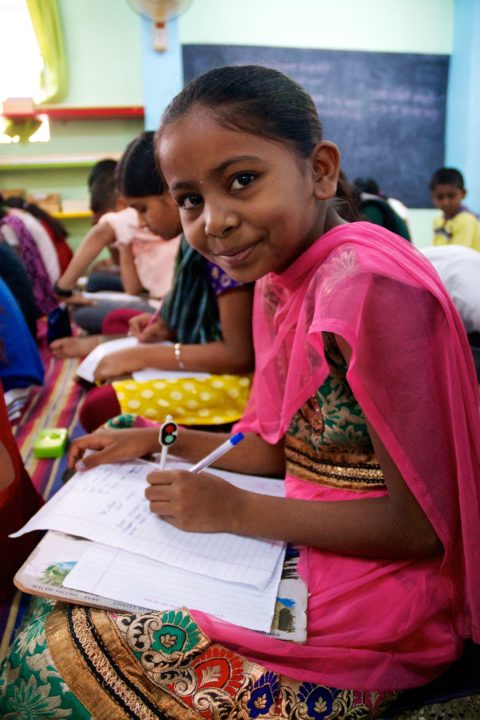
“I think [early] marriage is a byproduct of losing faith and losing the ability to survive. … What we try to do is not work specifically on that topic by itself, but the topic of dreams and aspirations. To make them understand there’s equality between males and females. To make them understand that girls have as much right and abilities to perform in life as a boy does. That there’s no difference,” he says, “between a boy and a girl.”
*To protect her identity, we have changed the name of the girl featured in this story and are not sharing any photos.
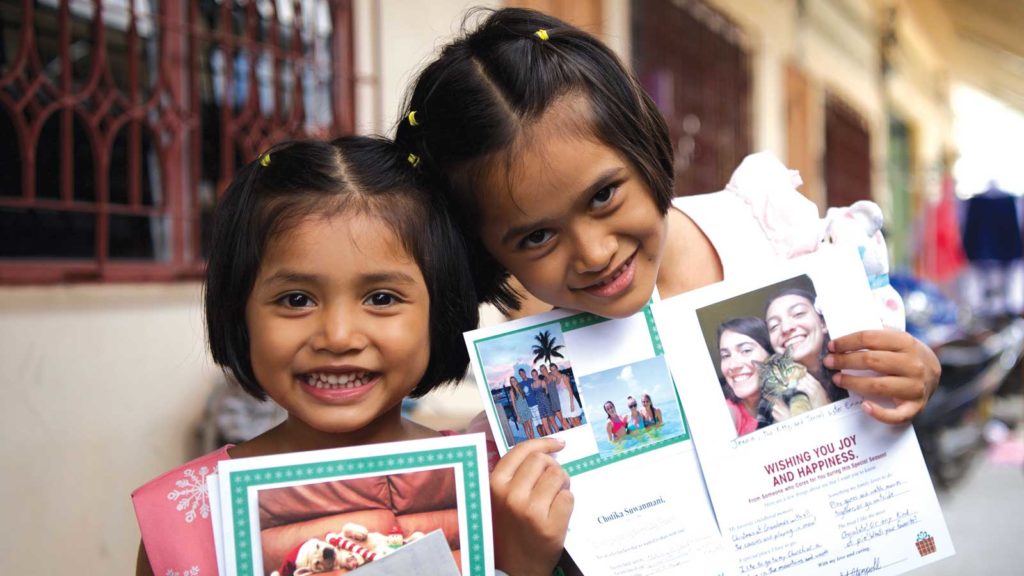
Become a Child Sponsor
Connect with a child. Provide for their needs. Share your heart for $43 per month.
